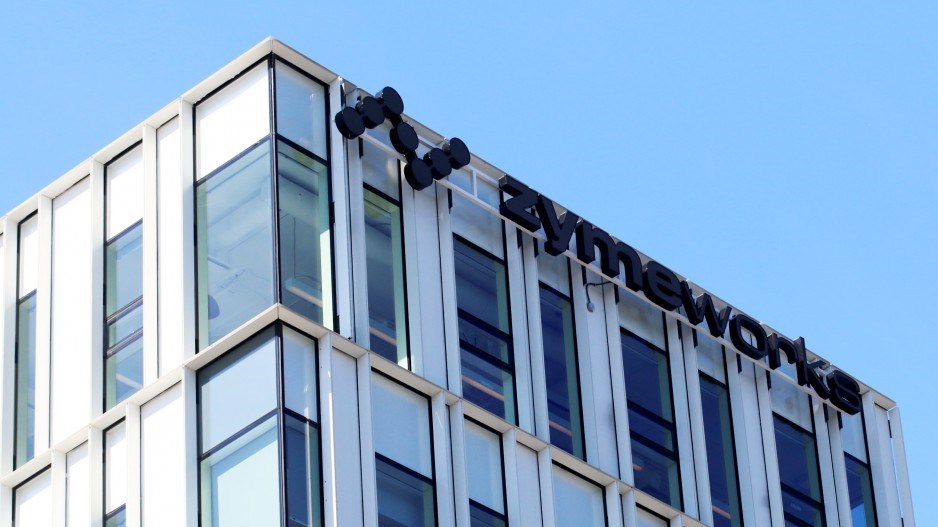B.C. biotech Zymeworks Inc. (NYSE:ZYME) is adopting a “poison pill” strategy to fight off an acquisition bid worth US$773 million ($989 million).
The Vancouver-based firm said Friday it would use a shareholder rights plan to stop investors from acquiring more than 10 per cent of shares or – in the case of “passive investors” – a total of 20 per cent.
So-called poison pill strategies allow investors to purchase additional shares at a discount to stave off efforts by other parties to acquire a company through a hostile takeover.
Dubai-based All Blue Falcons FZE (ABF) made an unsolicited bid to buy out Zymeworks in late April in an all-cash deal.
ABF, which owns a 6.9 per cent stake in Zymeworks, is attempting to buy the Vancouver-based company for US$10.50 a share. Zymeworks shares were trading at US$6.14, as of 12:50 p.m. PT on June 10.
“The rights plan will reduce the likelihood that any entity, person or group gains control of Zymeworks through open market accumulation without paying all shareholders an appropriate control premium,” the company said in a release.
“It will also provide the board with the appropriate time to make informed judgments and take actions that are in the best interests of all shareholders.”
The life sciences firm is best known for developing platforms that help other drugs more accurately identify and target cancerous cells.
Long a darling of the B.C. biotech sector, Zymeworks’ net losses grew to US$211.8 million in 2021 – up from losses of US$171.2 million a year earlier, according to financials released in February.
The company laid off about 25 per cent of its workforce and cut its senior management team in half just weeks before the release of those financials.
Founding CEO Ali Tehrani also departed the top job at that time, with former board member Kenneth Galbraith taking over as CEO and chairman.
The board said Friday this poison-pill strategy would protect shareholders during what it describes as a period of “substantial market dislocation in which the current trading value of Zymeworks’ shares does not reflect the inherent value of Zymeworks’ business or its long-term prospects and commercial opportunities.”
The rights plan is set to expire in June 2023.
Zymeworks went public in 2017, raising nearly US$60 million in its initial public offering.
Shares debuted at US$13 each and rose to a high of US$57 in January 2021.
Amid increasing financial strains, it closed another offering in late January 2022 worth US$107.6 million, selling around 14 million common shares at US$8 each.
“We believe that the board’s decision to pursue this highly dilutive equity offering in current volatile market conditions, in preference to other available alternatives for raising capital, was contrary to the best interests of the company and its stockholders,” ABF said in an April letter sent to the Zymeworks board.
“As a result of these and other issues, the company’s stock price has plummeted an astounding 87 per cent since July 1, 2021. As a significant investor in the company, we believe that Zymeworks stockholders deserve better than the consistent value destruction they have suffered during this relatively short period of time.”




